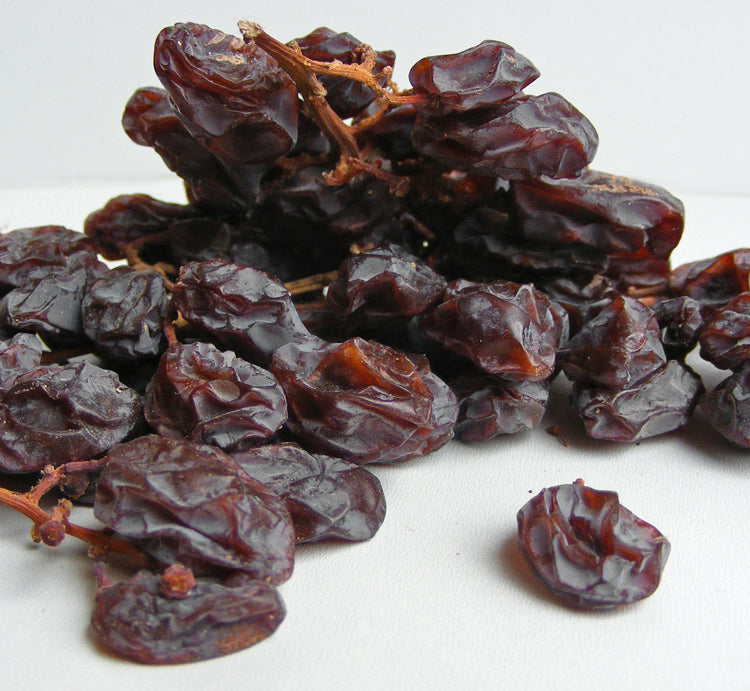
Master Vintner Varietal Spotlight: Moscato
This is the fourth in our series of blog posts taking a look at the type of grapes we use in Master Vintner wine kits. Grape types are known as 'varietals' and each one has its own unique character and response to the sunlight and soil of the region they're grown in. I'll be talking about all of the grapes we use in our Master Vintner kits in turn, to help you understand the flavors, aromas and history of each.
 Moscato, or Muscat is one of the oldest of all known vines. The ancient ampelographer (and general genius-type) Pliny the Elder traced it to the Greek anathelicon moschaton, favored first by the Greeks and later by the Romans. It's a prolific grape, with over a dozen sub varieties and offspring. The Muscat Blanc is the most common (and considered to be the highest quality). An important distinction: Muscat is unrelated to Muscadelle, Muscadine or Muscadet.
Moscato, or Muscat is one of the oldest of all known vines. The ancient ampelographer (and general genius-type) Pliny the Elder traced it to the Greek anathelicon moschaton, favored first by the Greeks and later by the Romans. It's a prolific grape, with over a dozen sub varieties and offspring. The Muscat Blanc is the most common (and considered to be the highest quality). An important distinction: Muscat is unrelated to Muscadelle, Muscadine or Muscadet.
Moscato doesn't get the top billing like Cabernet Sauvignon or Chardonnay, but it's been made into wine a lot longer than they have, and is probably a lot more friendly to the palate of most drinkers. Also, it was favored by ancient wine drinkers who preferred the richer, sweeter wines that Muscat is capable of making.
 Moscato’s most distinctive trait is its fragrance, a terrific bouquet of tropical fruits, flowers, Rose petals and citrus as well as a rare grace note: it smells 'grapey', from high levels of monoterpenes like citronellal, geraniol, linalool and nerol in the fruit. Not the foxy-grape aroma of Concorde grapes, but more like table grapes you'd buy in the store. It's not found in other wine grapes and is really appealing. The flavors are bright, clean and full, with a soft touch of acidity on the palate. Very ripe Moscato grapes show dried fruit, grilled pineapple and honey/caramel notes. If you like Riesling and Gewurztraminer, you'll love Moscato—they share many of the same aromas.
Moscato’s most distinctive trait is its fragrance, a terrific bouquet of tropical fruits, flowers, Rose petals and citrus as well as a rare grace note: it smells 'grapey', from high levels of monoterpenes like citronellal, geraniol, linalool and nerol in the fruit. Not the foxy-grape aroma of Concorde grapes, but more like table grapes you'd buy in the store. It's not found in other wine grapes and is really appealing. The flavors are bright, clean and full, with a soft touch of acidity on the palate. Very ripe Moscato grapes show dried fruit, grilled pineapple and honey/caramel notes. If you like Riesling and Gewurztraminer, you'll love Moscato—they share many of the same aromas. Master Vintner Moscato is made from the variety known as Muscat blanc à Petits Grains, which translates into 'Muscat with little white berries—but the grapes actually show a range of colour from green to bronzy-red and some variants produce different coloured berries from one year to the next. The fruit is high in potential alcohol, so needs to be handled carefully or the final wine can get too alcoholic. Commercial Muscat makes a spectrum of wines all identifiable by the fruit’s perfume, dry, semi-sweet or sweet, still, semi-sparkling or sparkling wine (Moscato d'Asti), and even as a fortified dessert wine. Master Vintner Winemaker's Reserve Moscato makes a soft, rounded wine that finishes with tropical and stone and dried fruit, pineapple, white grape, and lychee — it's a dry wine, but seems rich, despite the lack of residual sugar.
 It's an excellent food wine, friendly with everything. One great pairing is melon wrapped in prosciutto: the melon showcases the acidity behind the lush fruit, and the savory prosciutto highlights the perfumed fruity sweet notes. Scallops sautéed in butter do the same, playing on the themes of acid and fruit, while soft cheese desserts like cheesecake, flan or mascarpone play very well with the soft acidity.
It's an excellent food wine, friendly with everything. One great pairing is melon wrapped in prosciutto: the melon showcases the acidity behind the lush fruit, and the savory prosciutto highlights the perfumed fruity sweet notes. Scallops sautéed in butter do the same, playing on the themes of acid and fruit, while soft cheese desserts like cheesecake, flan or mascarpone play very well with the soft acidity. 
For a summer treat, slice peaches into individual wine glasses and top them with Master Vintner Moscato and chill for an hour. In cooler weather a mild Danish blue cheese on the side brings out all the vibrancy of the fruit. It's delicious and refreshing served cool to cold (45-50F) and it's perfect as a base for white Sangria.
If you'd like to try it a bit sweeter, you can add wine conditioner according to package instructions. A bit of sweetness rounds out the flavors and makes it really gulpable in hot weather, and if you're adventurous (or if you have your own kegging system) sparkling Moscato is one of the best things you can make for summer parties and barbecues.

Tim Vandergrift
For the past two decades, my life has centered around making, drinking, cellaring, collecting, experimenting with and, above all, sharing my love for homemade wine! That often entails traveling around the world teaching others about winemaking.
